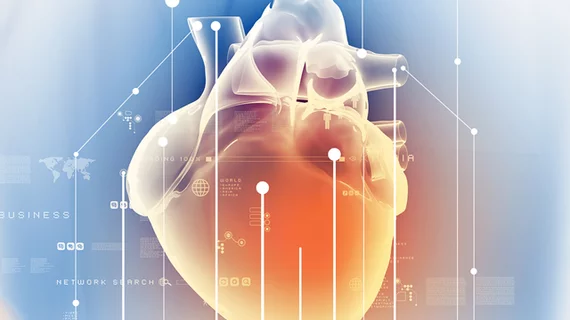AI analyzes cardiac MRI blood flow to predict stroke, heart attack, death
A new artificial intelligence algorithm that can predict a patient’s risk of heart attack and stroke is propelling cardiovascular care into the future.
Researchers from the United Kingdom were able to compare patient’s AI-generated blood flow results taken from cardio MRI scans to determine their risk for experiencing adverse health events. They found that those with limited blood flow were more likely to suffer worse heart-related health outcomes.
The study, which is the first and largest of its kind, was published Feb. 14 in Circulation.
"Artificial intelligence is moving out of the computer labs and into the real world of healthcare, carrying out some tasks better than doctors could do alone,” James Moon, MD, with University College London, said in a statement. “We have tried to measure blood flow manually before, but it is tedious and time-consuming, taking doctors away from where they are needed most, with their patients."
And that’s a big deal, according to Moon and colleagues, who noted that reduced blood flow is often treatable. Currently, international guidelines recommend invasive approaches—such as fractional flow reserve—to measure blood flow, but these come with risks. And while AI-based approaches have been tested using cardio MR scanning volume analysis, it has never been applied in perfusion imaging, the group wrote.
With this in mind, Moon and colleagues gathered routine CMR scans from 1,049 patients at two UK-based hospitals. Individuals had both suspected and known coronary artery disease and were referred for perfusion testing.
The authors had their algorithm automatically determine stress myocardial blood flow and myocardial perfusion reserve, which is the ratio of stress to baseline flow. This allowed the investigators to instantly deliver accurate heart muscle blood flow measurements to the teams treating their patients.
After follow-up—median of 605 days—Moon et al. found that they could accurately predict who was more likely to experience heart attack, stroke, heart failure and death.
"The predictive power and reliability of the AI was impressive and easy to implement within a patient's routine care,” Kristopher Knott, with University College London, said in the statement. “The calculations were happening as the patients were being scanned, and the results were immediately delivered to doctors.”
Results of the study, funded by the British Heart Foundation, will need further validation in prospective randomized trials, the authors wrote. But their approach offers new insights into the workings of the heart and may eventually lead to improved patient care.

